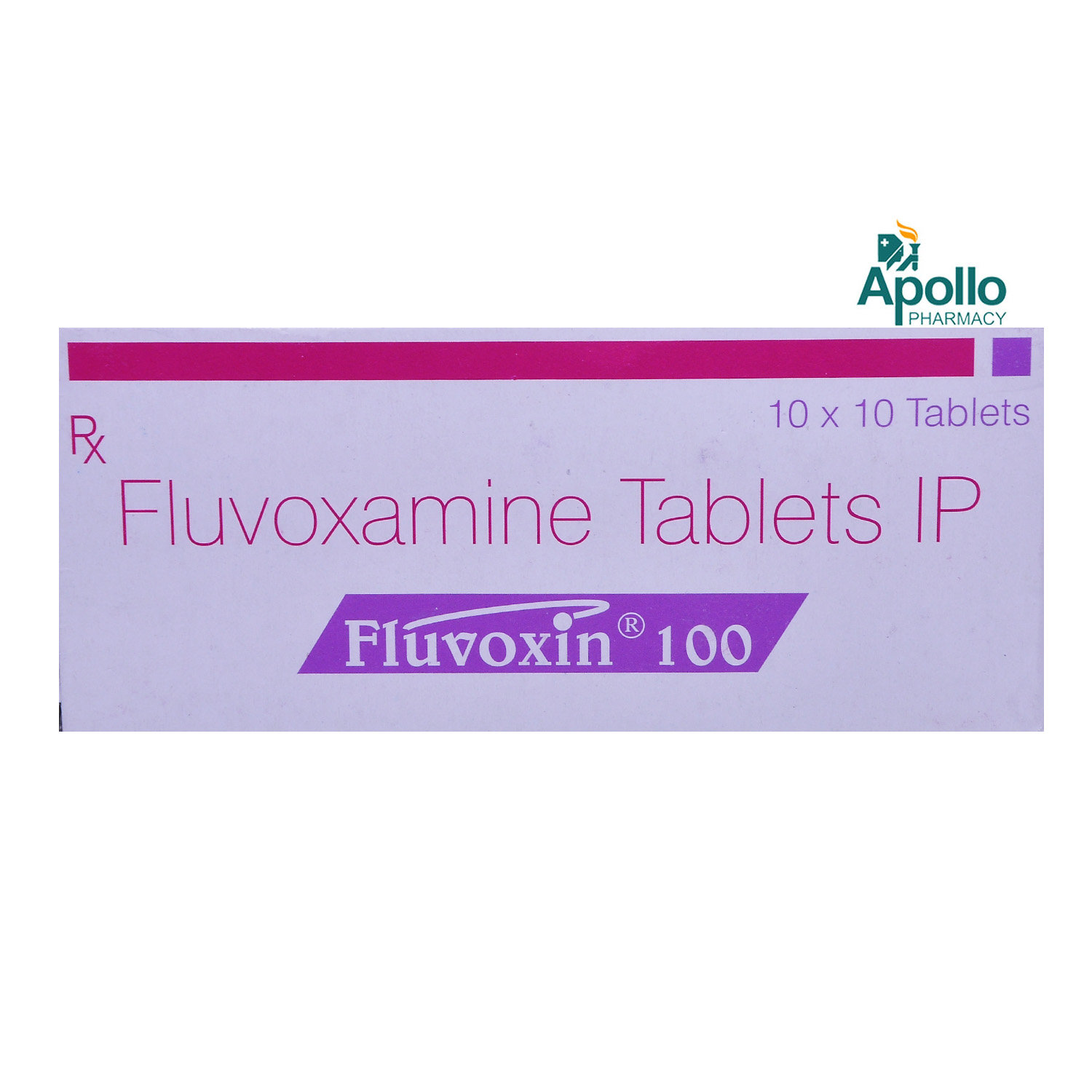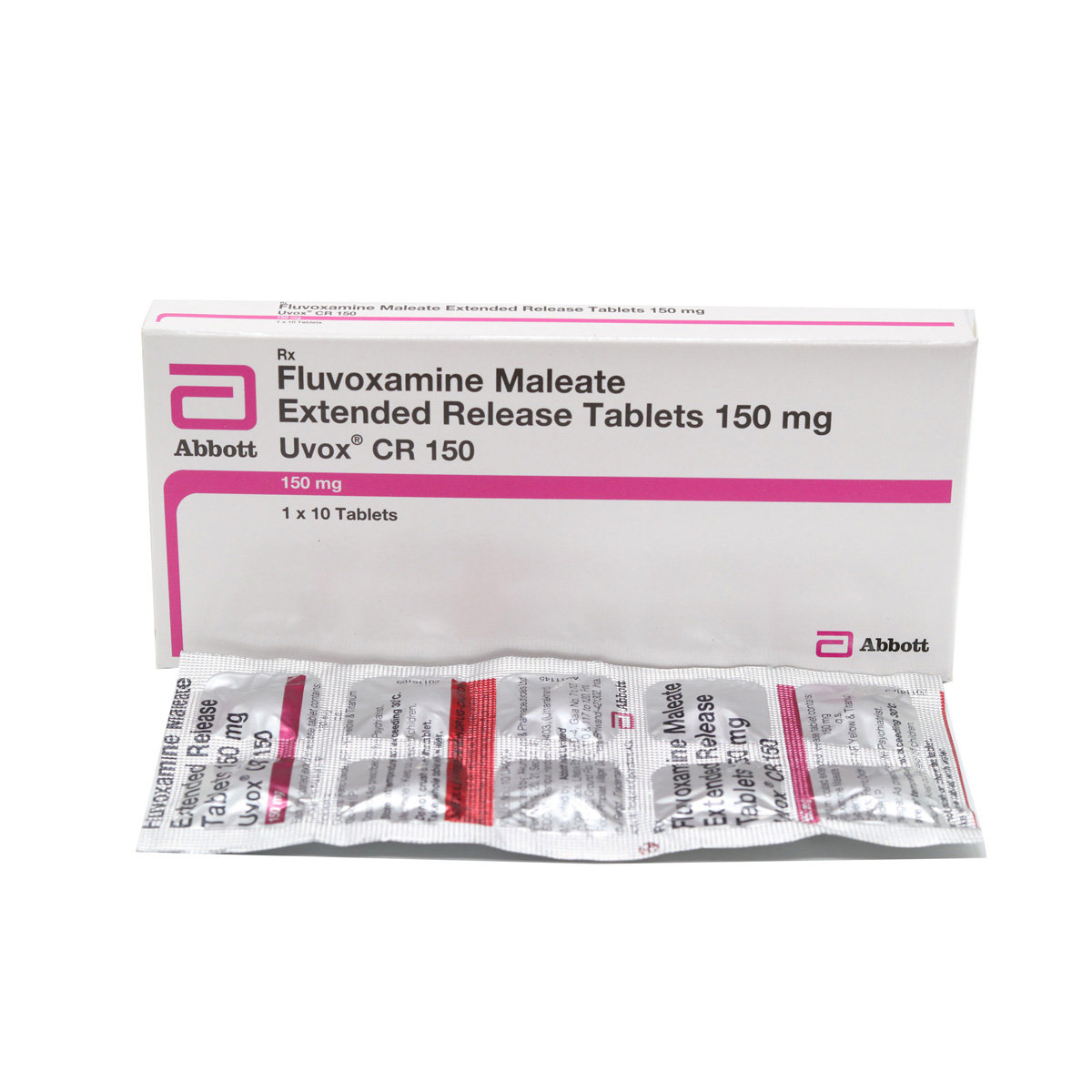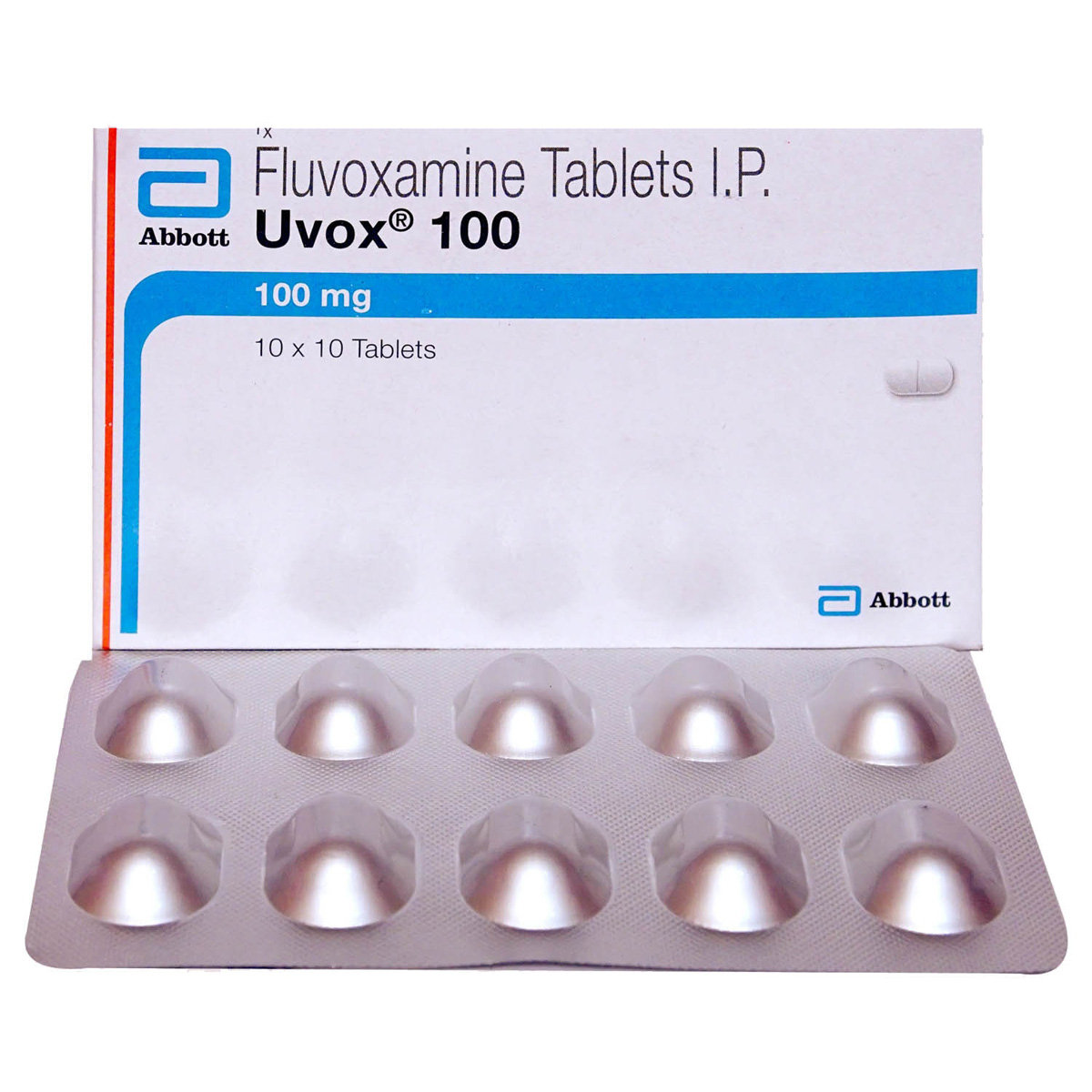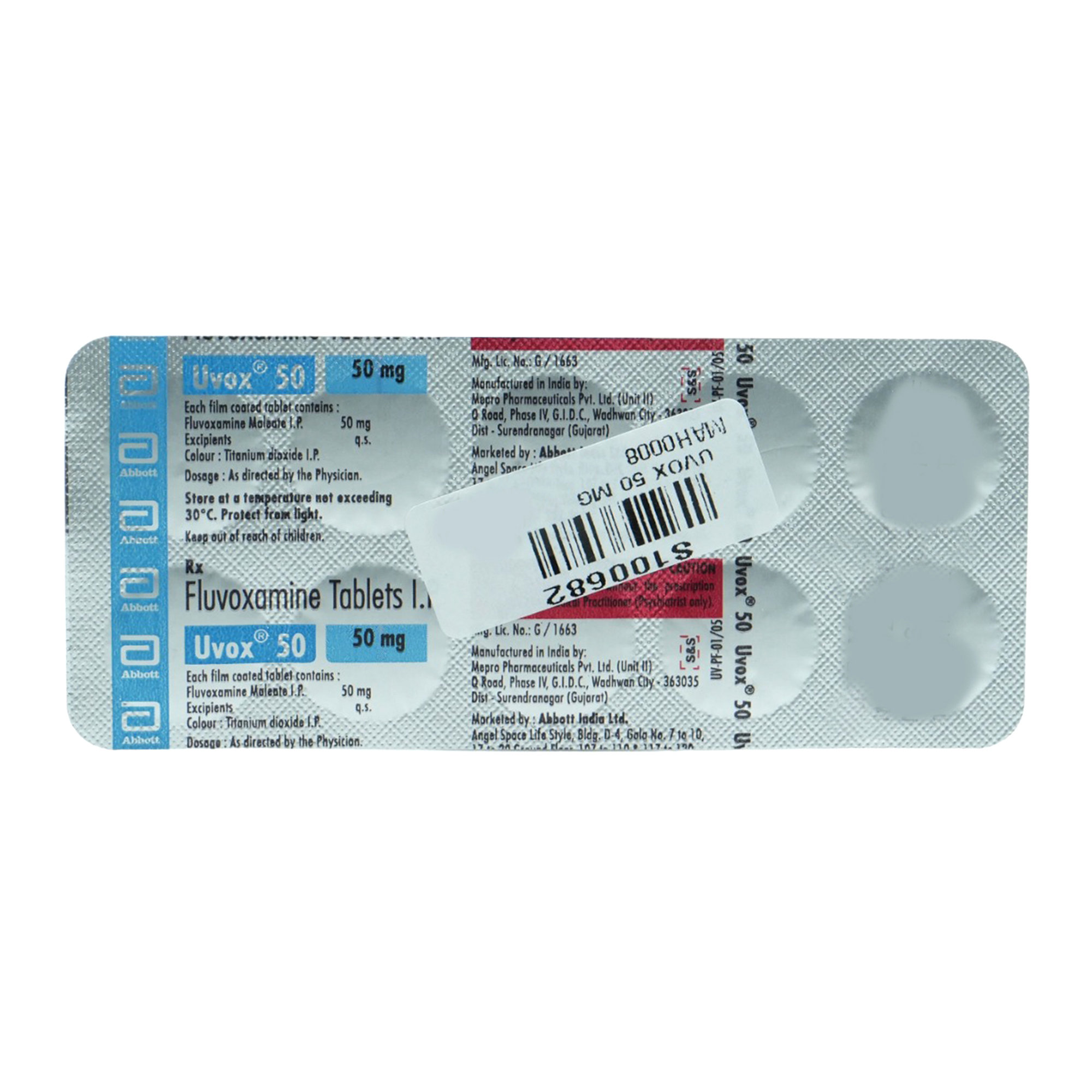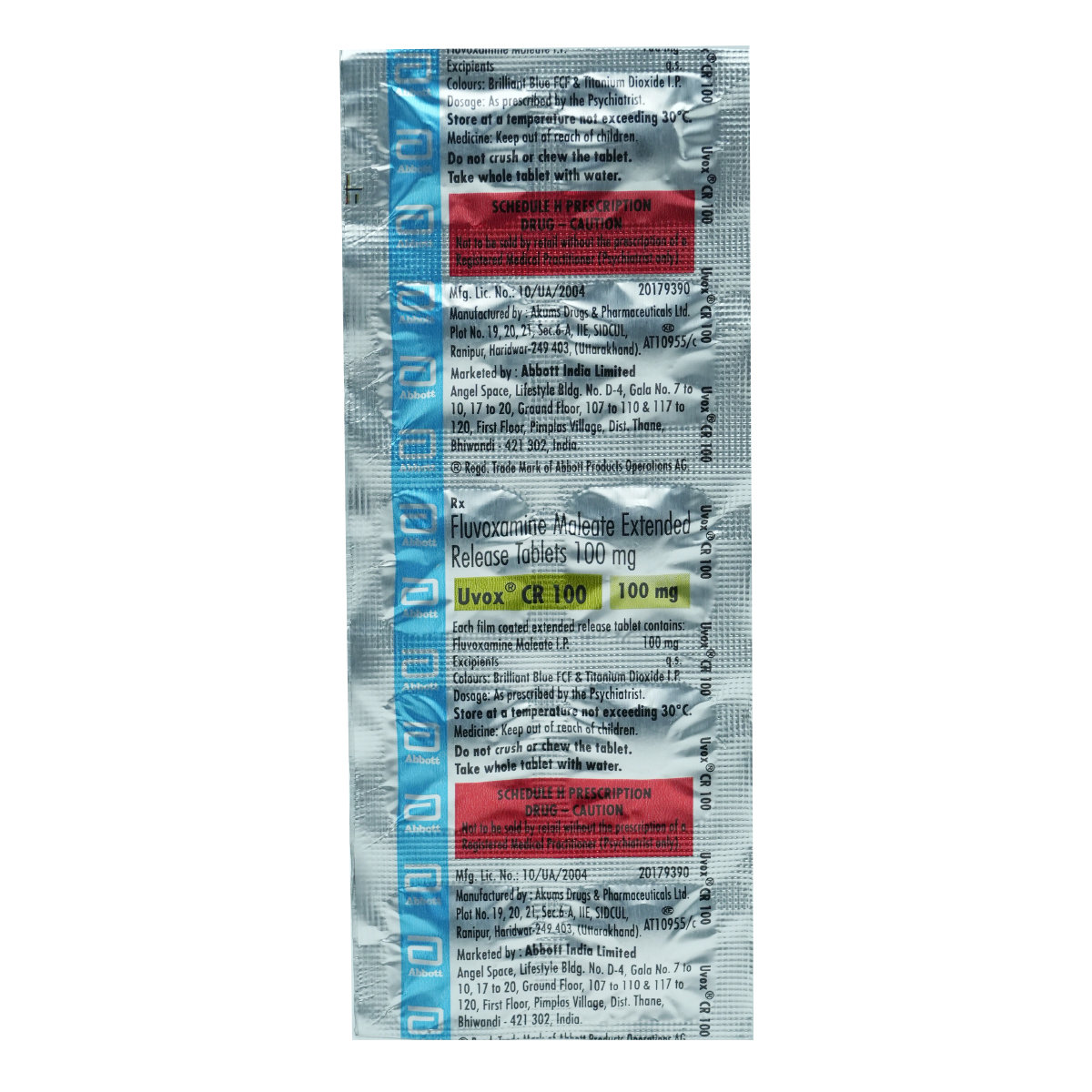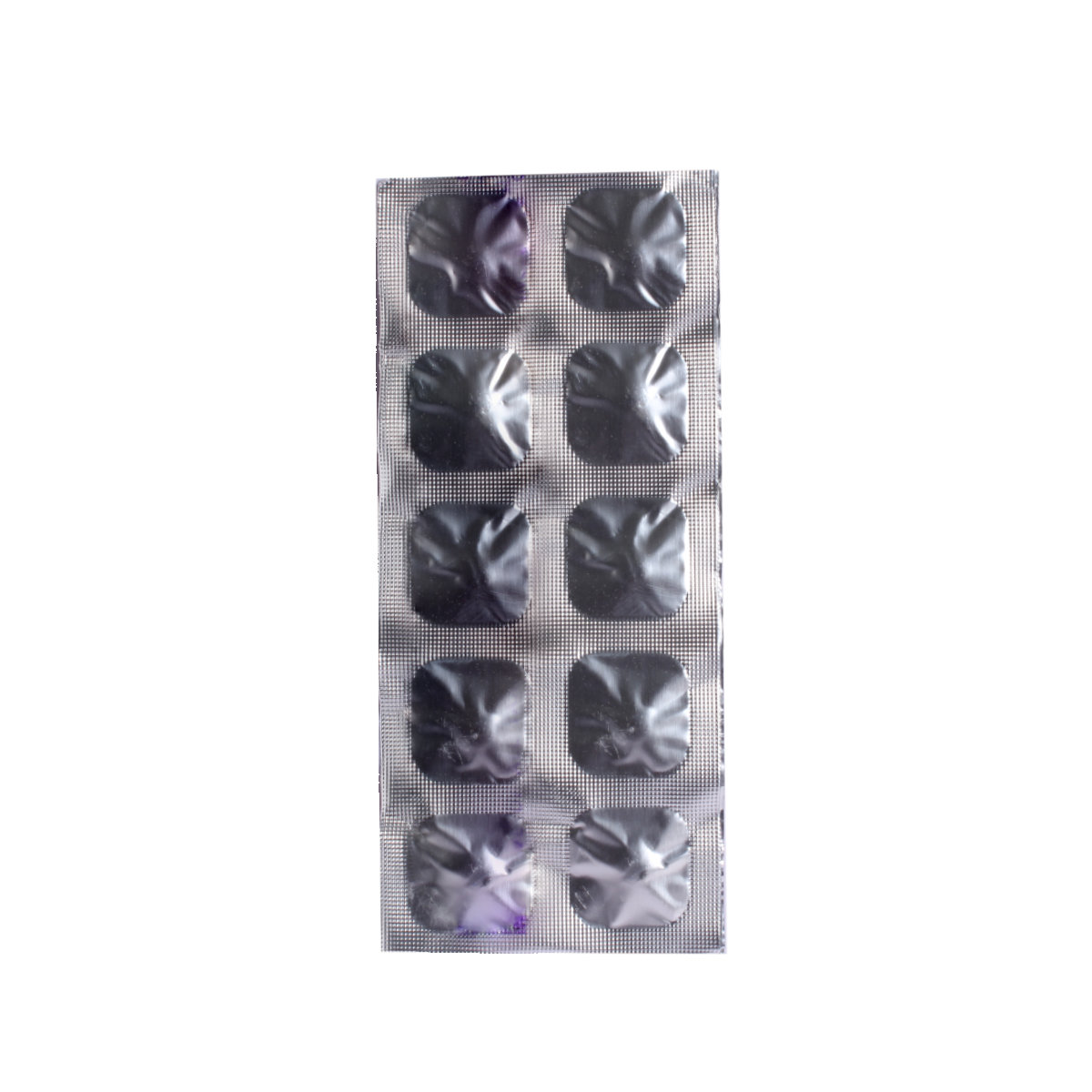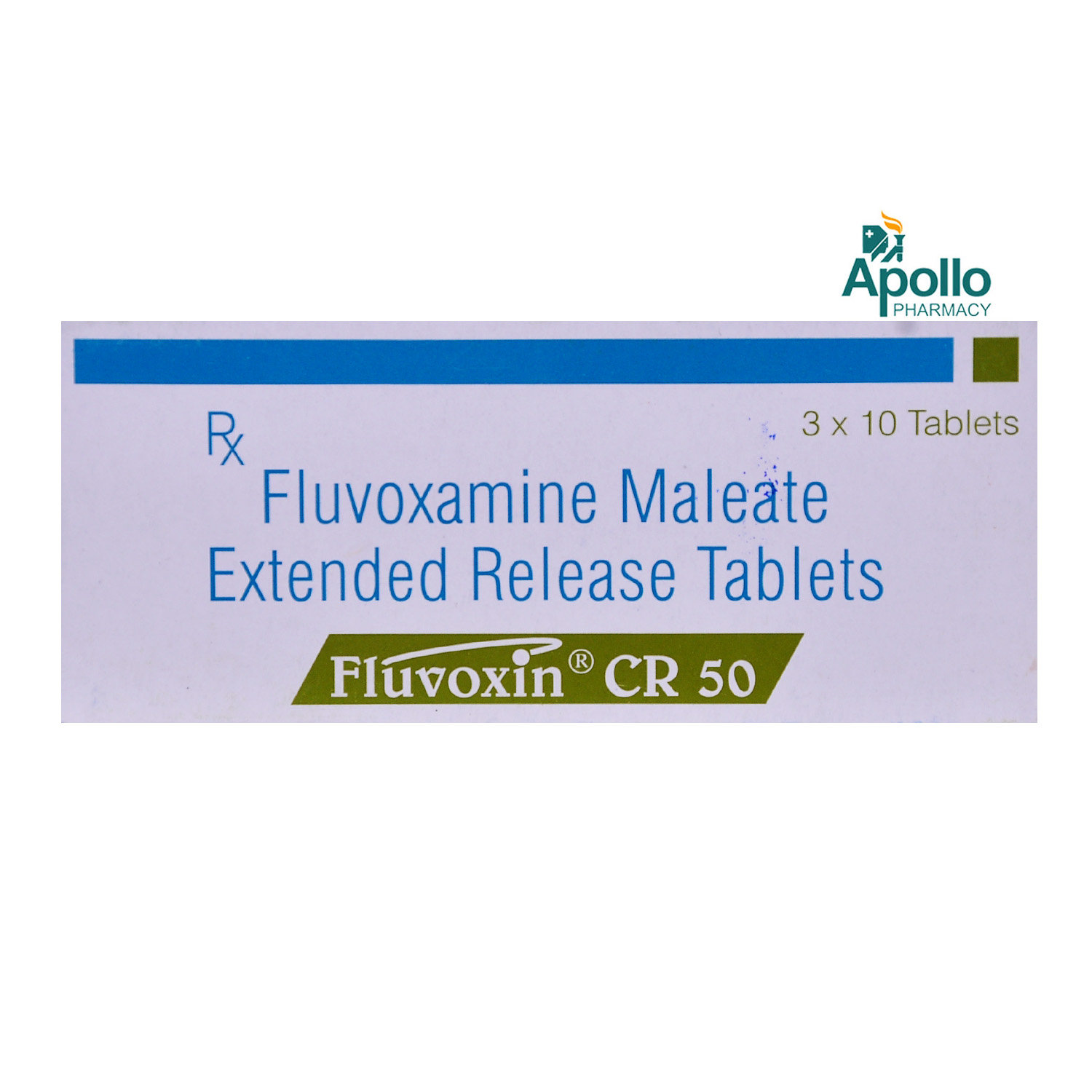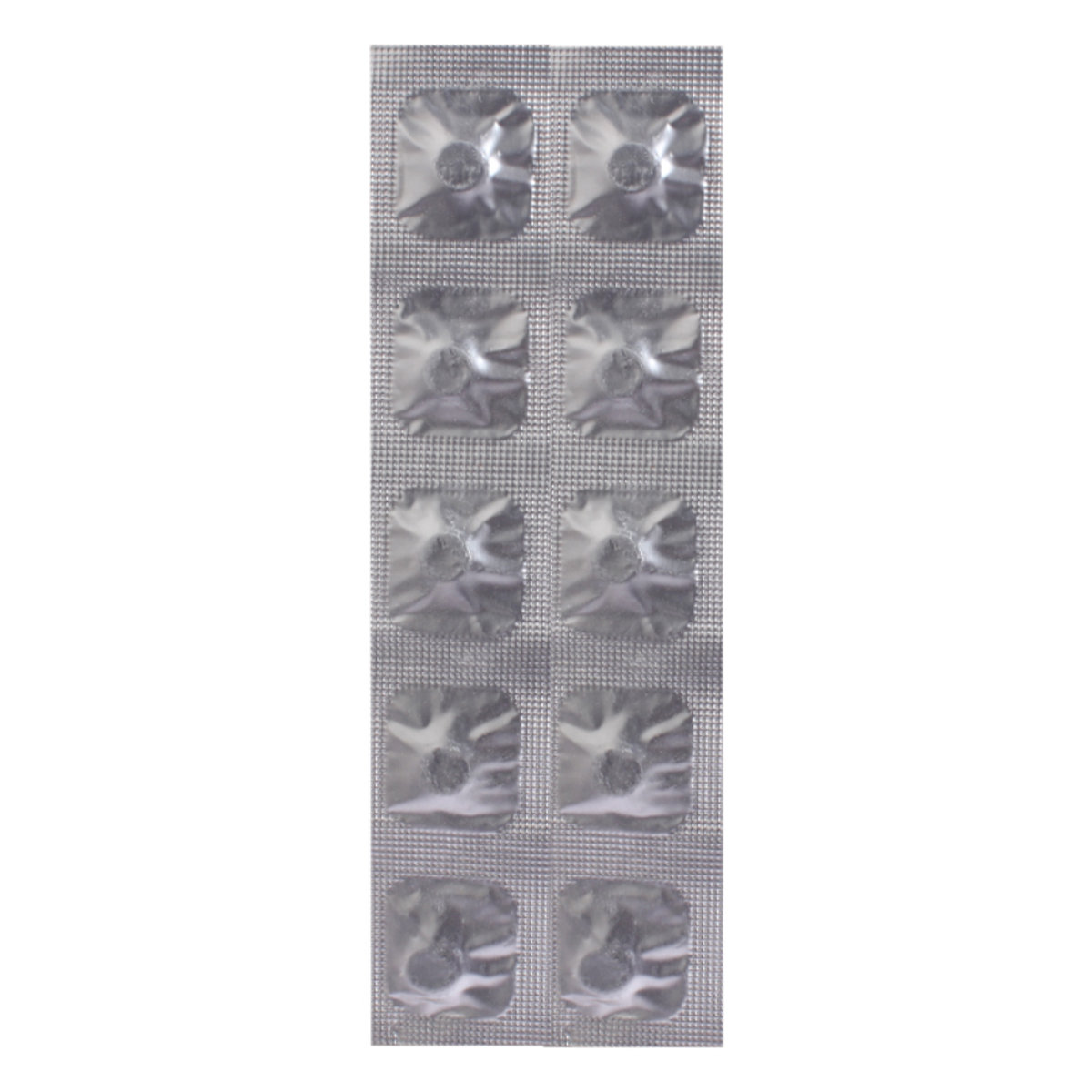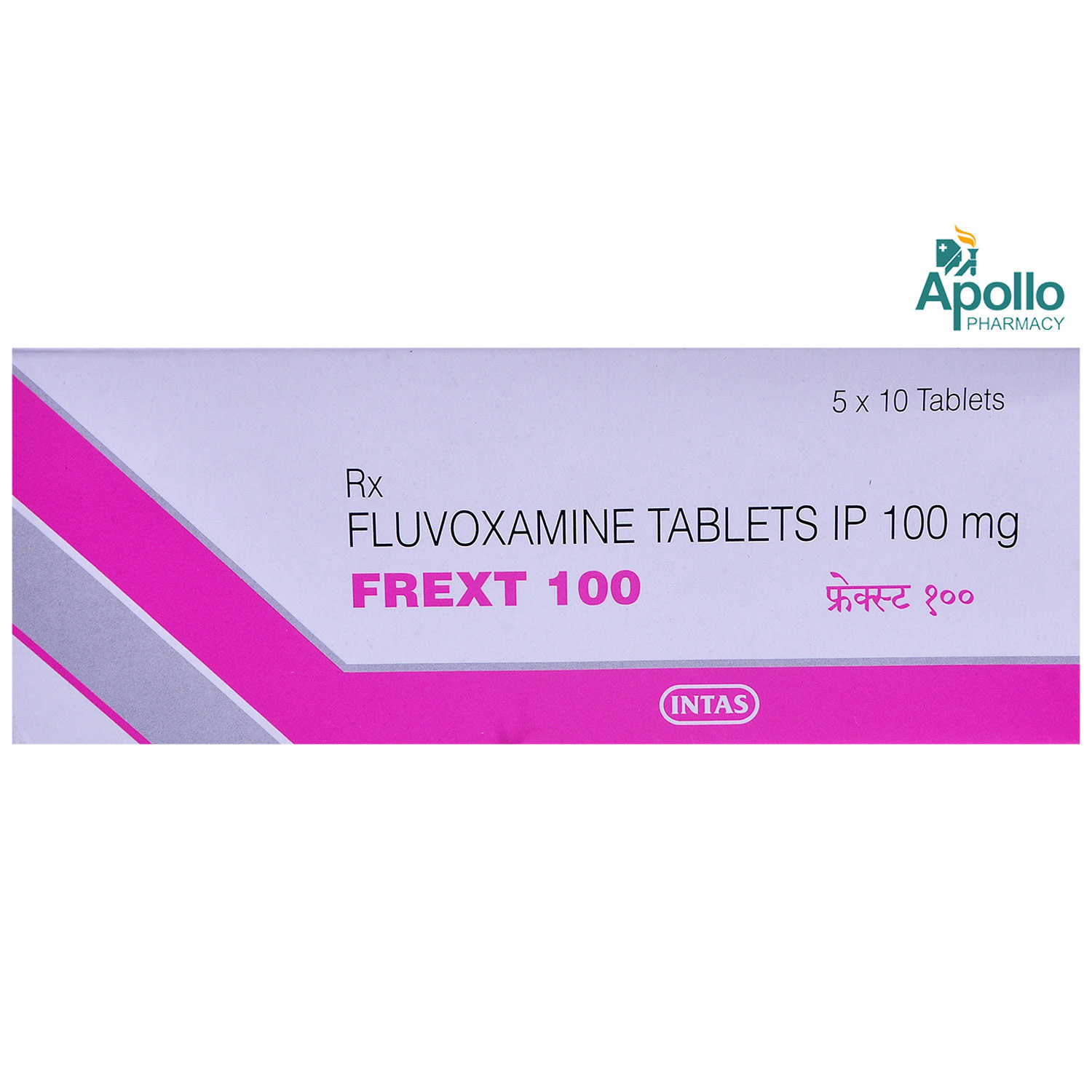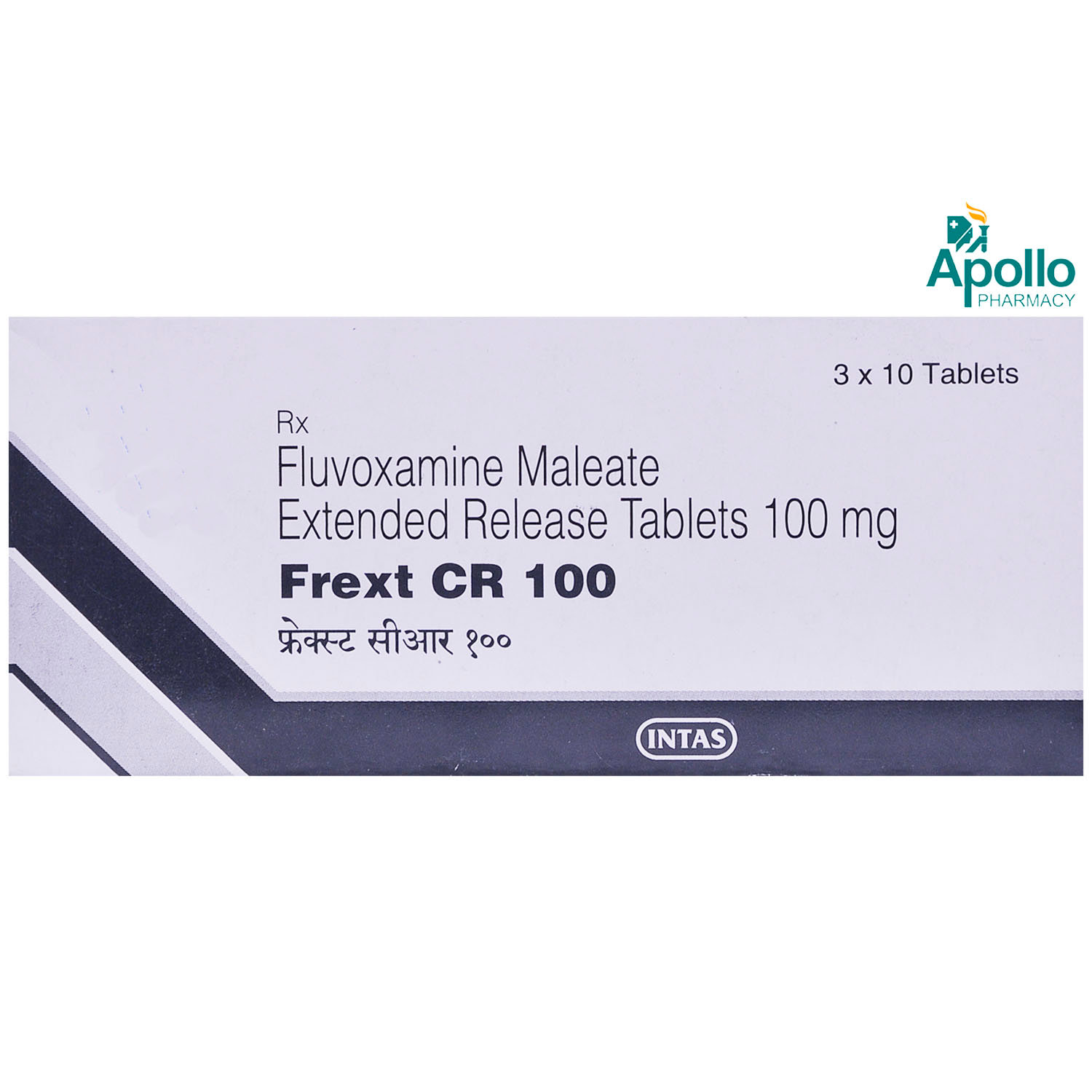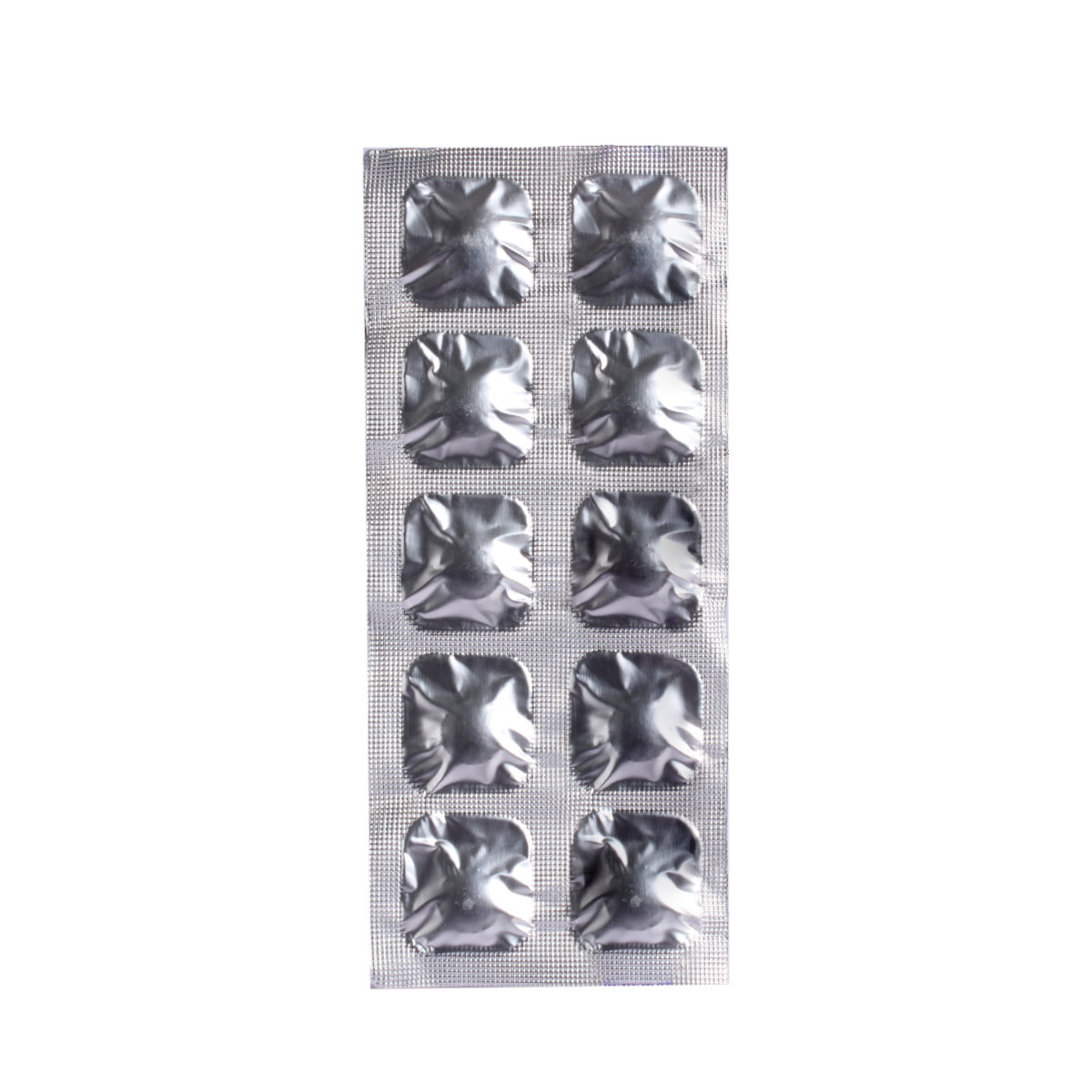Fluvoxamine
About Fluvoxamine
Fluvoxamine treats neurological diseases such as depression, anxiety, panic disorder, and obsessive-compulsive disorder (OCD). Depression is a mood disorder characterised by persistent feelings of sadness, loss, or anger. Anxiety is the feeling of fear about what’s about to come. Obsessive-compulsive disorder (OCD) is the excessive thoughts that lead to repetitive behaviour.
Fluvoxamine contains fluvoxamine, which increases the release of the serotonin hormone in the body, which is responsible for improving mood, cognition, and memory.
You may experience common side effects like drowsiness, delayed ejaculation, erectile dysfunction, low sexual desire, insomnia, nausea, vomiting, fatigue, dryness in the mouth, indigestion, nervousness, and tremor. Most of these side effects do not require medical attention and gradually resolve over time. However, if the side effects are persistent, reach out to your doctor.
Do not take Fluvoxamine if you are allergic (hypersensitive) to fluvoxamine or other ingredients present in this medicine. Before taking Fluvoxamine, inform your doctor if you have a low sodium level in the blood, an increased risk of bleeding, suicidal thoughts, liver problems, or a family history of depressive disorder. If you are pregnant, immediately inform your doctor because Fluvoxamine may harm the unborn baby.
Uses of Fluvoxamine
Medicinal Benefits
- Fluvoxamine belongs to the class of antidepressants.
- It is used to treat neurological diseases such as depression, anxiety, panic disorder, and obsessive-compulsive disorder (OCD).
- Fluvoxamine is a selective serotonin reuptake inhibitor (SSRI).
- This medicine increases the release of the serotonin hormone, which balances the excitatory responses in the body.
- It helps in improving mood, memory, cognition, and learning.
- It also helps to regulate digestion, sleep cycle, and food cravings.
Directions for Use
- Fluvoxamine can be taken with or without food as advised by your doctor.
- Follow your doctor's instructions on the dosage and timing of this medication to ensure safety.
- Swallow Fluvoxamine as a whole with a glass of water.
- Do not chew, crush, or break it.
Storage
Side Effects of Fluvoxamine
- Drowsiness
- Delayed ejaculation (an extended period of sexual stimulation in men for the release of sperm)
- Erectile dysfunction
- Low sexual desire
- Difficulty sleeping
- Nausea
- Vomiting
- Restlessness
- Fatigue
- Dryness in the mouth
- Indigestion
- Loss of appetite
- Increased sweating
- Nervousness
- Tremors
Medicines Containing this Salt
View AllDrug Warnings
- Do not take Fluvoxamine if you are allergic (hypersensitive) to fluvoxamine or other ingredients present in this medicine.
- Before taking Fluvoxamine, inform your doctor if you have low sodium level in the blood, increased risk of bleeding, suicidal thoughts, liver problems, kidney problems, family history of depressive disorder, intestinal ulcer (bleeding in the intestine), and glaucoma.
- If you are pregnant, then immediately inform your doctor because Fluvoxamine may harm the unborn baby.
- Talk to your doctor if you are a breastfeeding mother.
- Do not take alcohol because alcohol makes you dizzier and drowsier. Talk to your doctor if you are using alcohol.
Drug Interactions
Drug-drug interactions: Fluvoxamine may interact with medicines used to treat pain and inflammation (aspirin, tramadol), immune suppressants (ciclosporin), medicines used for abnormal heart rhythms (mexiletine), medicines used to treat pain and withdrawal symptoms (methadone), epilepsy medications (phenytoin or carbamazepine), blood pressure-lowering pills (propranolol), Parkinson's disease (ropinirole), migraine medications (sumatriptan), asthma medications (theophylline), antiplatelet drugs (clopidogrel), and blood thinner (warfarin).
Drug-food interactions: Alcohol can increase the nervous system side effects of Fluvoxamine, such as dizziness, drowsiness, and difficulty concentrating. Some people may also experience impairment in thinking and judgment. It would be best to avoid or limit alcohol use while being treated with Fluvoxamine.
Drug-disease interactions: Fluvoxamine should be used with caution in patients with liver disease, depression, seizures, hyponatremia (low sodium level in blood), and weight loss.
Drug-Drug Interactions Checker List:
Safety Advice

Alcohol
unsafeFluvoxamine interacts with alcohol and increases the risk of side effects like sleepiness and dizziness.

Pregnancy
consult your doctorFluvoxamine should not be used when pregnancy unless clearly necessary. So, inform your doctor if you are pregnant or suspect pregnancy. Your doctor will weigh the benefits and potential risks before prescribing Fluvoxamine.

Breast Feeding
consult your doctorFluvoxamine should not be used in nursing mothers unless clearly necessary. So, inform your doctor if you are a nursing mother. Your doctor will weigh the benefits and potential risks before prescribing Fluvoxamine.

Driving
unsafeFluvoxamine causes drowsiness. So, it is recommended to avoid driving or operating heavy machinery after taking Fluvoxamine.

Liver
cautionFluvoxamine to be taken with caution, especially if you have a history of liver diseases/conditions. The dose may have to be adjusted by your doctor.

Kidney
cautionFluvoxamine to be taken with caution, especially if you have a history of kidney diseases/conditions, as dose adjustment might be required.

Children
unsafeFluvoxamine is not recommended for use in children because it may cause loss of appetite and weight loss.
Habit Forming
Diet & Lifestyle Advise
- Eat a well-balanced diet.
- Avoid processed or packaged foods and foods that are high in refined sugars.
- Exercise regularly.
- Lose excess weight and keep a check on your weight.
- Avoid stress.
- Improve your mood by being active, socialising with others, and talking about your feelings.
- Quit alcohol intake and smoking.
Special Advise
Patients Concern
Disease/Condition Glossary
Depression: Depression is a mental health disorder in which patients experience persistent loss of interest or mood and feelings of sadness. It affects the quality of life. It causes changes in sleep, appetite, social behaviour, learning abilities, concentration, and self-esteem.
Anxiety: Anxiety is a feeling of fear, worry, or uneasiness. It is usually a normal emotion. However, the condition is called anxiety disorder if a person experiences repeated episodes of anxiety that worsen over time or interfere with daily activities.
Panic disorder: Panic disorder is a type of anxiety disorder. It is characterised by sudden panic attacks in which patients experience intense fear even if there is no danger.
Obsessive-compulsive disorder (OCD): As the name suggests, patients experience obsessions (intrusive, excessive thoughts) that cause compulsions (impulsive behaviours). It is characterised by nervousness, repetitive movements or words, and increased alertness.
FAQs
Fluvoxamine belongs to the class of medications called antidepressants. It is used to treat depression, anxiety, panic disorder, and obsessive-compulsive disorder (OCD).
When you take Fluvoxamine, it increases the serotonin levels. Serotonin is a chemical messenger in the brain responsible for improving mood and physical symptoms of depression. It is also responsible for relieving symptoms of anxiety, panic attacks, and obsessive-compulsive disorders.
Do not stop Fluvoxamine without your doctor's advice. Sudden discontinuation may lead to withdrawal symptoms such as nausea, insomnia, restlessness, and anxiety.
Fluvoxamine may cause side effects on prolonged use. So, using this medicine for the duration prescribed by your doctor is recommended.
Yes, a common side effect of Fluvoxamine is sleepiness. It may also affect your capacity to think clearly, react quickly, or make decisions. Avoid operating heavy machinery or driving until and unless you know how Fluvoxamine affects you.
Fluvoxamine may either cause weight loss or weight gain. Weight loss occurs due to loss of appetite. However, the chances of having weight loss or gain are not known. Compared to other anti-depressant medicines, there is no major change in the body's weight with Fluvoxamine in most people.
Fluvoxamine may cause gastritis. Consult a doctor if you experience any abnormal side effects while taking Fluvoxamine.
In case you miss a dose of Fluvoxamine, do not take a double dose of Fluvoxamine. If you remember the missed dose before sleeping, take it at that time and take Fluvoxamine at the same time the next day, which you were taking earlier. If you remember the missed dose the next day, leave the skipped dose, and continue with the next dose.
Fluvoxamine is used to treat anxiety disorders, including social anxiety disorder, panic disorder, and obsessive-compulsive disorder (OCD).
Fluvoxamine is unlikely to produce a high effect. However, consult your doctor if you experience any symptoms or concerns. Limited evidence is available, so it's essential to consult a healthcare professional for personalised advice.
Fluvoxamine is not recommended for individuals who are allergic to any component present in the medication or pregnant women. Additionally, caution should be exercised when using Fluvoxamine in patients with certain medical conditions, including liver disease, depression, seizures, hyponatremia (low sodium level in blood), and weight loss. It is essential to consult a healthcare professional before taking Fluvoxamine, especially if you have any of these conditions or concerns, to ensure safe and effective use.
Fluvoxamine may pose serious health risks, including increased suicidal thoughts, serotonin syndrome, seizures, allergic reactions, liver damage, and heart rhythm disturbances. To mitigate these risks, it's crucial to adhere to the prescribed dosage, disclose all medications and medical history to your doctor, and closely monitor your mood and behaviour. Promptly report any unusual symptoms or side effects to your healthcare provider. Remember, Fluvoxamine requires careful supervision and guidance from a medical professional. If you have concerns or questions, don't hesitate to reach out.
Avoid stopping Fluvoxamine without your doctor's guidance, even if you're feeling recovered. Abruptly discontinuing the medication can trigger a range of symptoms, including withdrawal reactions, depression relapse, anxiety, dizziness, and headaches. Instead, consult your healthcare provider to determine the best course of action and ensure a gradual tapering of your dosage, if necessary.
Common side effects of Fluvoxamine may include drowsiness, delayed ejaculation (extended period of sexual stimulation in men for releasing of sperm), erectile dysfunction, low sexual desire, insomnia (difficulty in sleeping), nausea, vomiting, restlessness, fatigue, dryness in the mouth, indigestion, loss of appetite, increased sweating, nervousness, and tremor. Most of these side effects of Fluvoxamine do not require medical attention and gradually resolve over time. However, if the side effects persist, contact your doctor.

